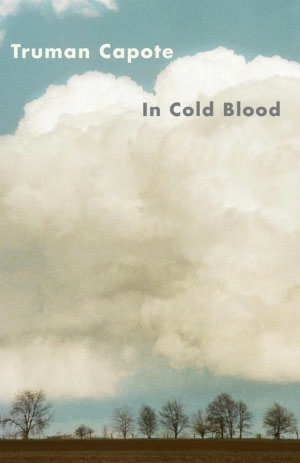 |
| Image courtesy of www.barnesandnoble.com |
Truman Capote
1965
The Summary
In 1959, four members of the Clutter family were brutally murdered in their home in Holcomb, Kansas. With no motive to speak of and virtually no clues, the killers almost walked away scot-free.
In this novel, Truman Capote reveals all the gory details behind the case of a multiple murder and reveals the fear and distrust which struck at the very heart of the tiny town of Holcomb, Kansas.
The Good
Capote provides rich amounts of detail and offers uncanny insight into the lives of murderers Richard Hickock and Perry Smith. Besides giving a realistic depiction of events, the author also imparts a journalistic quality to his novel that lends credence to his work and gives it an aura of undeniable fact.
For every event he describes, he unearths evidence to prove his point and, for every detail he offers to his audience, he provides legitimate documentation. Capote, one way or another, gets his facts straight - and they're incredibly hard to refute.
The Bad
In Cold Blood, however, can also get bogged down by all those details.
Capote almost offers too much fact. I know that may seem hard to believe, but there are years of legal documentation and newspaper reports and investigations to sift through. Honestly, all that information crammed into one tiny space can prove challenging. It's difficult to wade through it all and retain an honest interest in the story Capote's trying to tell.
Additionally, I think it's important to note that Capote has embellished his work to some degree. Fiction, if only a slight amount, manages to creep its way into Capote's novel. You see, in trying to instill as much truth and detail as possible, Capote has managed to undermine his own work.
Although he tells his story with as much truth and honesty as he can muster, certain facts may still become misconstrued because Capote has attempted to chronicle the thoughts of other individuals and pass them off as the highest truth. No one can write with complete certainty what another individual is thinking at all times - unless, of course, that person happens to be a mind reader.
And I highly doubt the conclusion that Capote was telepathic.
The Ugly
Unlike most books, Capote's novel is a "true account of a multiple murder." The implications, then, are staggering. You cannot fall back on the comforting excuses of fiction, because you can't simply dismiss the credibility of Capote's tale.
In Cold Blood is strikingly, chillingly real.
No comments:
Post a Comment